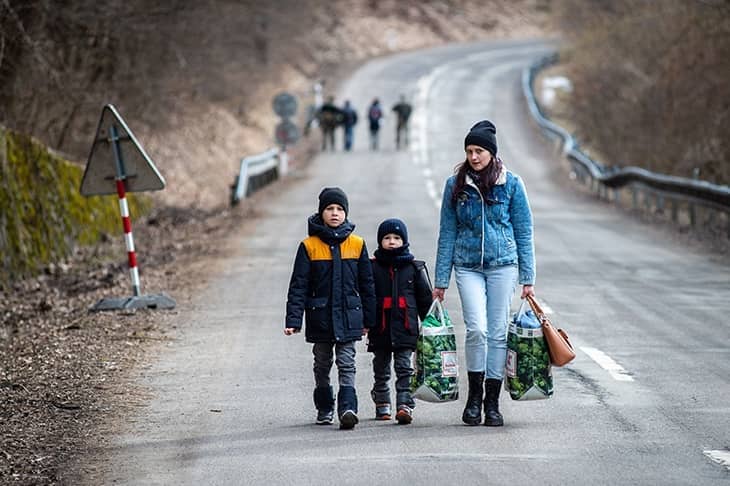During the Cold War, any citizen of a Soviet bloc country who made it to Britain and claimed asylum was welcomed with open arms. The fact people wished to take great risks to move westwards for safety and shelter, while hardly anyone wanted to move in the opposite direction, settled the question of which system was better. Besides, the numbers who made it out were tiny – the brutality of border guards patrolling the Iron Curtain saw to that.
In recent years, the concept of asylum has been complicated by the debate on how to handle the much larger flow of migrants who are prepared to risk their lives fleeing poverty. One of Boris Johnson’s biggest headaches before the Ukraine crisis was his inability to stop the new wave of small-boat crossings to the UK. How could he promise to ‘take back control’ of Britain’s borders if he had demonstrably lost control of them to people smugglers?
We ought not to confuse this issue with the situation in Ukraine. Its people should be given an immediate and unconditional right to asylum here. The United Nations estimates that some 660,000 people are on the move, which is understandable given that Russian missiles are being directed at residential blocks. The Prime Minister has rightly ruled out a no-fly zone because it could escalate the situation and lead to war with Russia. But this raises the question: what more can we do to help, above and beyond what we have done already?
Ukrainian people should be given an immediate and unconditional right to asylum here
It should be obvious that anyone carrying a Ukrainian passport has a genuine reason to flee their country. The current scheme, which allows only relatives of Ukrainians in Britain to settle here, is a needless and indefensible obstacle. The situation in Ukraine is not a case of a small skirmish in one corner of a country or one group of people being particularly at risk.







Comments
Join the debate for just £1 a month
Be part of the conversation with other Spectator readers by getting your first three months for £3.
UNLOCK ACCESS Just £1 a monthAlready a subscriber? Log in